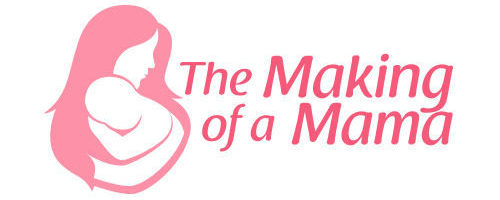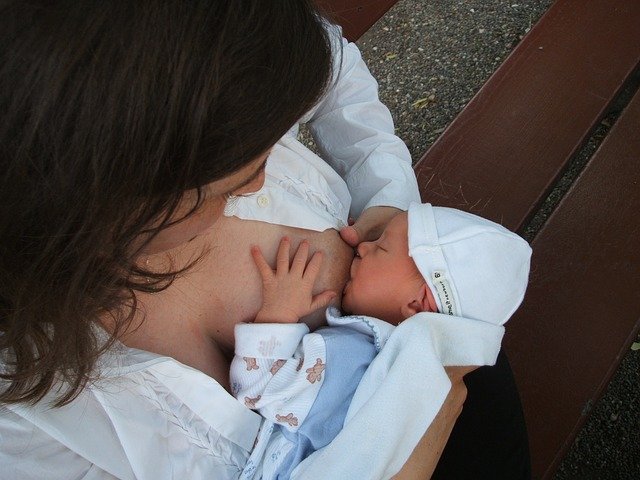Four Steps to Breastfeeding Success
Maybe you’re just starting to think about breastfeeding. Maybe you already know you want to, but you’re overwhelmed by the amount of information out there. Where do you even start?
I was handed a binder of information during my first prenatal appointment outlining the benefits of breastfeeding. The nurse sat down with me and started going through it, and after a few minutes, I stopped her. I told her that she didn’t need to go through all of that with me. I already knew that I wanted to breastfeed. She continued, and I stopped her again. No really, I said. You don’t have to convince me. I’m going to breastfeed.
I was so naive.
I had this perfect picture in my head of what my breastfeeding journey would look like. The truth is, no one knows what that journey will hold, and you can’t prepare for everything. But I didn’t even try to prepare. I somehow thought that I would just know what to do and that it would all come very easily and naturally. And that’s how I found myself on google for hours every day, looking up things like, “Is it normal when…” or “How do I know if…” or “Why does my baby…” etc. I was trying to figure everything out after the fact, rather than setting myself up for success beforehand.
Knowing Where to Begin
Friends and family will offer a lot of advice. This information can conflict with something that someone else told you. Or they can inadvertently give you bad advice that is either incomplete or outdated. That is why it is important to seek professional help, before you are having trouble, so that you can start your breastfeeding journey confidently and know what your resources are.
Had I known then what I know now, I would have told myself to take a breastfeeding class, identify my local lactation support services, and do my research beforehand to determine which resources were accurate and trustworthy. The only thing I did do right beforehand, is learn how to use my breast pump, so at least that wasn’t a surprise when I needed it.
So, let me share what I learned, so that you are not as blindsided as I was.
Take a Breastfeeding Class
I don’t know why I didn’t think I needed this. The hospital where I was delivering (and also where I worked) offered a breastfeeding class for free. I had no excuse not to do it. But I didn’t, because I didn’t think I would learn much. But I was wrong. The truth is, you don’t know what you don’t know. And even though breastfeeding is natural, it doesn’t always come naturally. Preparation is the key to success.
A good breastfeeding class can teach you the basics of breastfeeding like, how to latch baby, different positions to hold baby, how milk production works, how much milk baby needs, and what’s normal. But they can also teach you things to look out for, common troubles that you might encounter, and what red flags require further help. Most importantly, a good breastfeeding class will tell you where to seek further help should you need it.
Breastfeeding classes are widely available these days. I would first suggest checking with the hospital where you will be delivering to see if they offer these classes. You can also use google to see if you have a local La Leche League that offers breastfeeding classes. There are also many breastfeeding courses online.
Identify Your Breastfeeding Support
Knowing who the professionals are and how to reach out to them can be an absolute lifesaver, and it’s best to identify them before you actually need the help. You will likely find lactation counselors at the hospital where you deliver, and many pediatrician offices either have someone on staff or have a lactation services phone line that is staffed with lactation counselors. These resources can be good for simple, quick questions.
Breastfeeding Support Groups
But what about when you need more than a quick answer, or need more direct help? A breastfeeding support group might be a good option for you. There are many groups available, but one of the most respected and most widely available is La Leche League. These groups are locally run by breastfeeding counselors who can help you address issues in real time and offer hands on advice. They are great for things like latching help, positioning help, weighted feeds (to determine how much milk baby is transferring during a feed), and other simple (but common) issues that arise. They can also help you recognize when there is a more complex problem that will require advanced professional help. You can visit their website at lllusa.org to find a group that is local to you.
Lactation Consultants
When it comes to the gold standard of lactation support, nothing surpasses the International Board Certified Lactation Consultant (IBCLC). These women have had literally hundreds of hours of hands on experience helping breastfeeding moms in order to obtain their certification. They’ve seen it all, and are experienced in identifying complex issues and developing care plans to address those issues.
Many (but not all) hospital lactation counselors are IBCLCs, however, finding an IBCLC in private practice is usually your best bet. Many times, hospital IBCLCs will not see you once you’ve been discharged. And if you are experiencing a complex issue with your baby, such as a tongue tie, you will need multiple visits and follow ups with your IBCLC. Unfortunately, IBCLCs are not as plentiful of a resource, so it is critical to identify who to reach out to before any issues arise. For bonus points, you can even set up a prenatal appointment with an IBCLC, to give you personalized support prior to starting your breastfeeding journey. You can visit the International Lactation Consultant Association’s website at portal.ilca.org to find an IBCLC in your community.
Do Your Own Research
The great thing about the internet is there is so much information available at our fingertips. The bad thing about the internet is that any old person can write whatever the heck they want! It’s vitally important to identify accurate and trustworthy resources so that you know the information you’re getting is valid.
Kellymom.com is my absolute go to when it comes to all things breastfeeding. All of their articles are written by IBCLCs, and cover wide and varied topics. Any question I have ever asked about breastfeeding has at least a few articles about it on Kelly Mom.
I didn’t read any books about breastfeeding before having my kiddo. There is one book that I think every breastfeeding mother should have in their arsenal, though. It is The Womanly Art of Breastfeeding by Diane Wiessinger, Diana West, and Teresa Pitman. This book is the breastfeeding guide written and used by La Leche League. It is an amazingly thorough overview of all things breastfeeding, and is an excellent place to start your research.
Take Your Pump for a Test Drive
I want to say one thing before moving on with this tip.
Do not actually use your pump on your breasts while pregnant unless your provider has given you the okay to do so. Pumping while pregnant can cause preterm labor, and is generally not recommended before 37 weeks.
Okay, this tip is slightly different than the others, but no less important. Breastfeeding is natural but may not come naturally. Pumping is not natural, and definitely has a learning curve! Every pump is different, so learning the nuances of yours is important. Take it out of the box, play with the parts, practice putting it together and taking it apart, press all of the buttons, etc.
Many pumps come with a standard and large flange, but it’s important to have a properly fit flange in order for your pump to effectively drain your breasts. There are a few ways to determine your flange size yourself, or this is something that a lactation counselor can help with. Definitely sterilize all of your parts according to the manufacturer’s guidelines. You want to become comfortable with your pump so that it doesn’t feel so foreign to you when it’s time to use it. It will still be weird, but hopefully not terribly so.
Starting Your Breastfeeding Journey
I totally understand being overwhelmed by the thought of breastfeeding. There is so much information out there! To set yourself up for success, you need to know where to start. Taking a class, identifying your support and resources, and practicing what you can beforehand will set you on the path for a successful breastfeeding journey.
By utilizing these tips, you will lay the foundation for success, and the next time you have a question, you will know exactly where to go.
What things are you doing to prepare for breastfeeding? Let me know in the comments!





